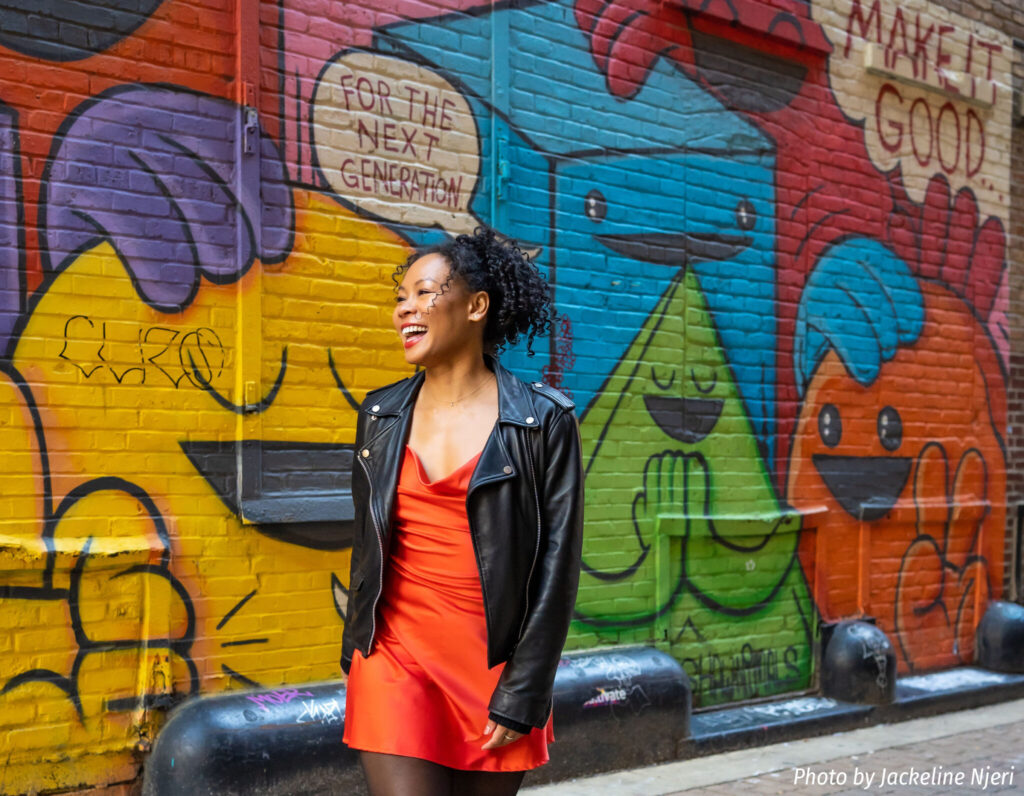
From High Jump to Hollywood: An Interview with Aris Mendoza, Cohort 10
Since its inception, High Jump’s emphasis has not been to put students on a specific path towards a specific definition of success, but to instead empower them with the experiences and resources to forge their own paths and their own definitions of success.
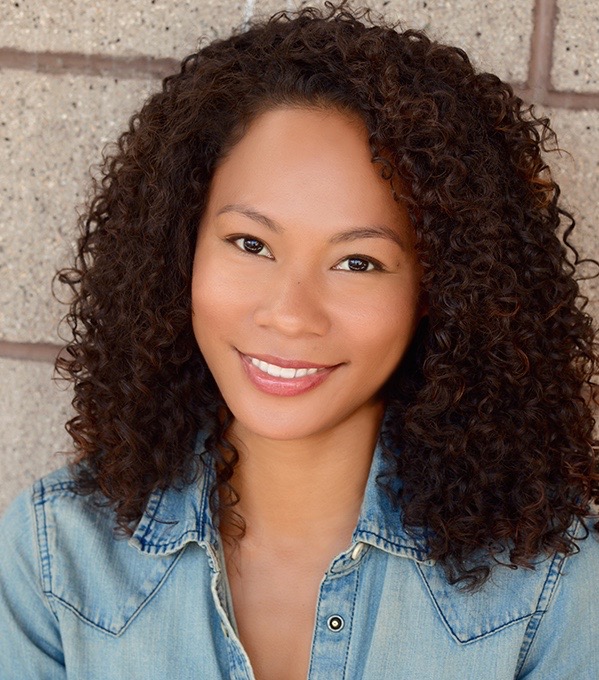
Over the course of the past two and half decades since she was in the program, Aris Mendoza has trailblazed her own path from a young Chicago middle schooler fascinated by and passionate about literature and the arts, to a working actress in Hollywood and, now, to a successful writer developing a number of projects including writing and producing an adaptation of Sandra Cisneros’s seminal Chicago coming-of-age novel, The House on Mango Street.
Aris, keynote speaker for High Jump’s 2024 Spring of Opportunity Benefit, recently sat down to talk with us about her journey from High Jump to Hollywood, what led her to pivot from her acting career to writing, and what she hopes to accomplish with her art and storytelling moving forward.
What first sparked your love of the arts?
When I was starting kindergarten, my dad was working full-time, and we couldn’t afford after-school daycare. There was a library that was like two blocks away from my school, and I remember my dad literally holding my hand, walking me from the school to the library, and saying, “Okay, every day after school, this is what you’re gonna do.” He introduced me to all the crossing guards, the librarians, and told them “Hey, this is Aris. Please look out for her.” Then every day after school, the Chicago Public Library was my babysitter from, you know, the hours of 3 to 6 p.m. or whenever my dad could pick me up. And so I just became a voracious reader. I really, really just latched on to literature as a form of escape and a form of really just expanding my concept of just what is possible, what is out there, who is out there? For me, literature has always been the foundation.
And from literature, you just dove more and more into the arts?
Yeah, my mom, she’s a very creative and artistically leaning person, so she ended up putting me in ballet when I was seven and was always taking me to museums and exploring Chicago’s incredibly rich culture outside of just what I was exposed to at school.
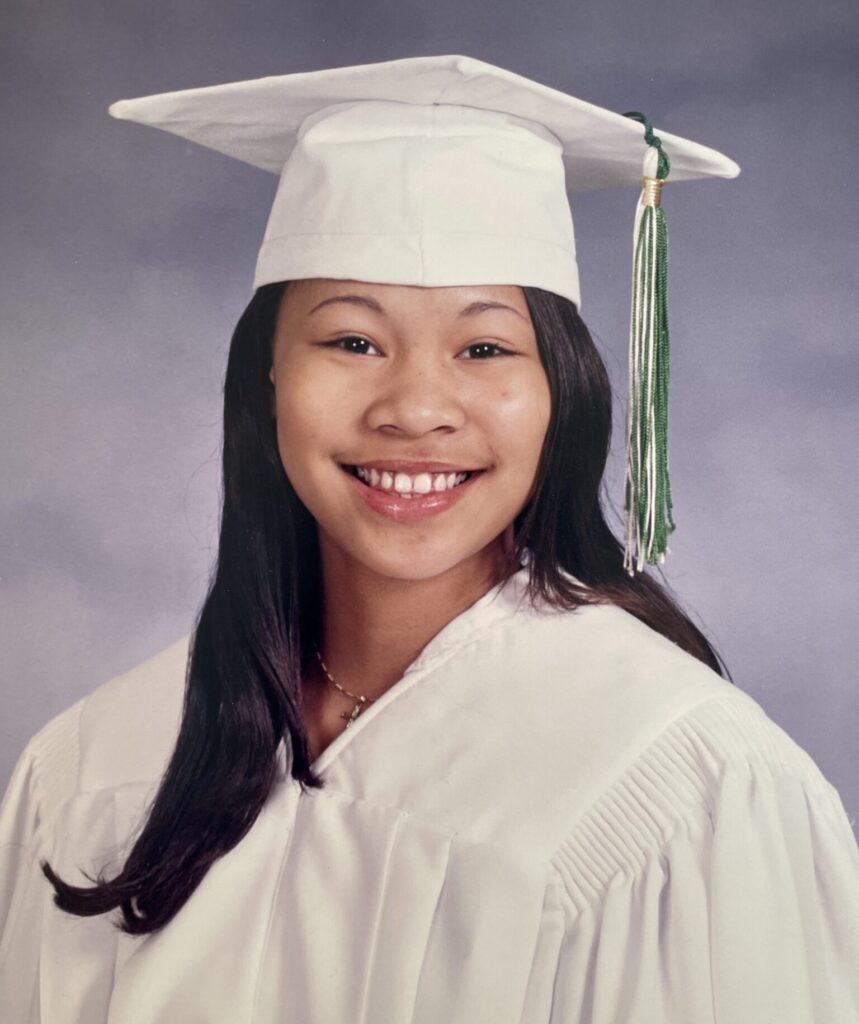
Was that why you wanted to join High Jump?
Yeah, definitely, that was part of it. I always was a very, I’d say, academically ambitious, highly competitive, and very, very active child. Like I did academic decathlon. I was a mathlete. I piled on the extracurriculars. I’ve always sort of been someone who loves to learn, but I also often was bored in school with the sort of traditional curriculum. And so when High Jump did a visit to our school and gave this presentation talking about being this very academically rigorous environment in order to set yourself up to, you know, go to some of the best and prestigious high schools in the country, it really appealed to me in terms of being in an environment where I could, you know, be challenged, where it would be free, for my parents. I also think that it’s significant to mention that the woman giving the presentation was a young, cool Latina woman, and, you know, I think there was something of a familiarity and a safety there for me. So I was like, hey, let me kinda see what this is about.
Once you got there, how did High Jump nurture that love of learning and fascination with the arts?
I mean, It’s actually kinda crazy to think about because, you know, now what I’m doing is working in entertainment, and I actually took my first ever acting class at High Jump. It was an improv class that exposed me to the idea of performance that was more, I’d say, empowering because I’d done the school plays and things like that at my regular school. But in that context, it’s just very structured, right? There’s this play we’re putting on. These are the roles we’re casting. Get in where you fit in kinda thing. Whereas, in the improv class at High Jump they just gave you this sort of sandbox to play in with a lot more freedom. It was about exploration, and it was just about sort of finding your voice, you know, playing these improv games. It was very much, kinda just, hey, let’s get you comfortable in your own skin, let’s get you exploring some different Ideas and characterizations that you maybe wouldn’t otherwise. It couldn’t have been a more sort of seamless introduction into the things that I’m actually doing now for my career. So yeah, High Jump was instrumental in that, for sure.
Talk me through how your entertainment career began.
I knew pretty early on that I wanted to pursue an acting career; from those early beginnings, studying ballet, taking improv at High Jump, and then I pretty much convinced my mom to actually leave Chicago when I was sixteen, and we went to Los Angeles. In my late teens and into my twenties, I started auditioning and started booking work. I was a working actor, but I was also a struggling actor. You know, I would get jobs here and there, but they would be few and far between.
What kind of roles were you getting?
By the time I was into my twenties, I started looking less and less like a teenager, and my agent was saying that, you know, you’re not playing sixteen anymore, but you don’t look old enough to be like a hot gun-toting detective. And I remember them saying, like, that’s all there is for someone like you. I even remember being in an acting class in LA at the time. And I remember asking my teacher, who was someone I considered like family, like, hey, what types of roles do you think I should be going for? He knew what I was capable of, and he said to me, “you’re the best friend. You should be going out for these best friend roles.” Don’t get me wrong, some of those roles are great fun, and some of our favorite people that are icons today – I mean, Kerry Washington started as the best friend in Save the Last Dance. There’s no shame in that kind of role, but to be told that that’s sort of, like, the height, that’s the aspiration, was a bit depressing, to be honest. I’m aging myself, but this was, like, twenty-ish years ago, and those opportunities did not really exist for, quote, unquote, “someone like me” at that time.
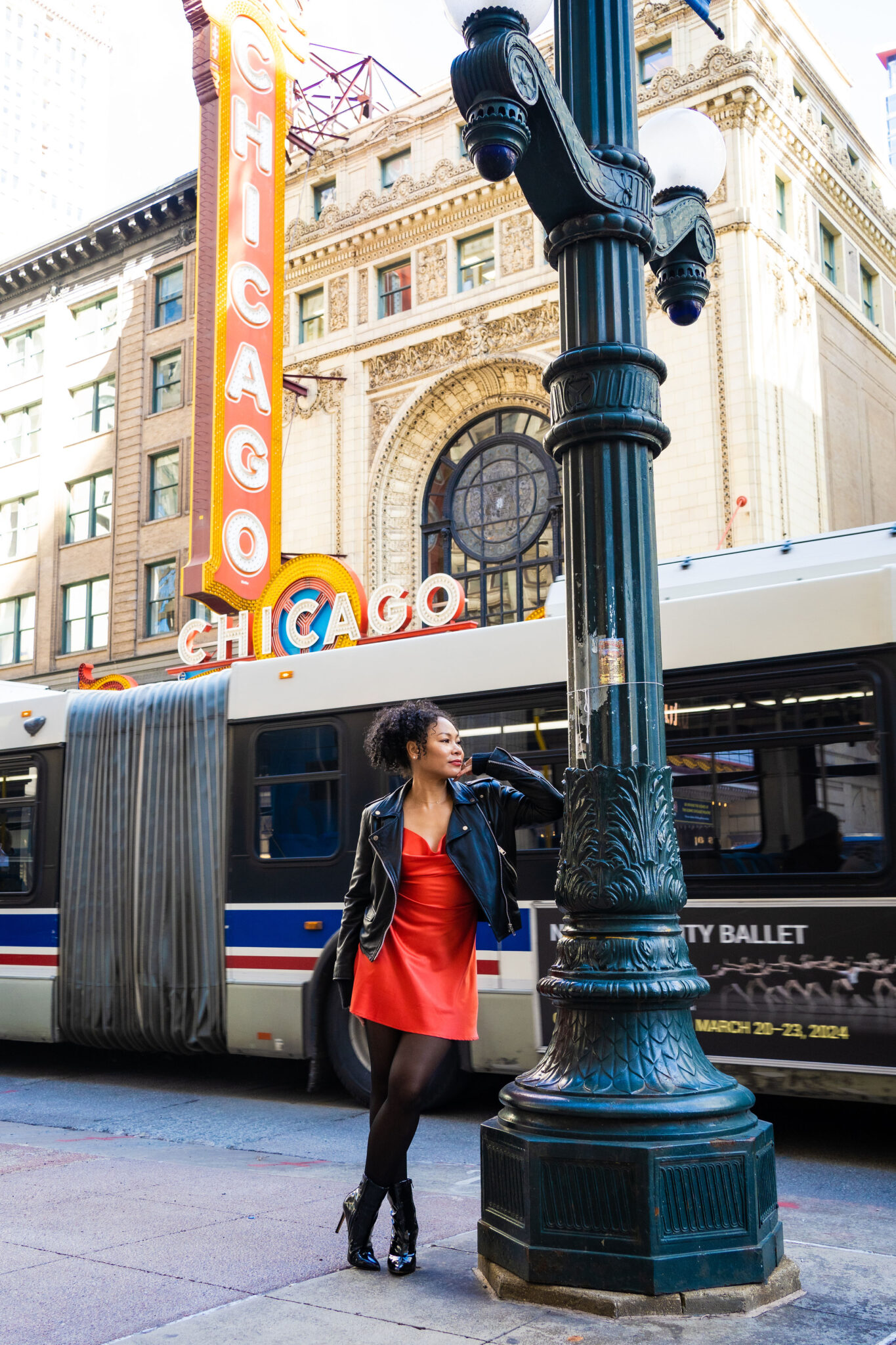
Is that kind of when you decided to pivot to writing?
I think, sort of being competitive and having that sort of scrappy Chicago girl in me, I was like, okay, well, if these opportunities don’t exist, why is that? It’s because people aren’t writing them. And so, for me, that was sort of the impetus and the catalyst to really start focusing on what it would look like to be a writer and to be the person who was kind of filling in the gaps of what was missing in the marketplace, you know, and creating those opportunities that didn’t exist at that time.
But at the same time, I never felt like I fit in at The Groundlings School and the lack of diversity was staggering. Maybe it has changed as I have not set foot in the school since 2017, but that was my experience back then. Being in an environment that was not a great fit for me pushed me to dig deep and ask myself, “If this doesn’t feel like the right place or right thing for me, then what is?” Ultimately, what I landed on, is that I need to be in the driver’s seat and in my own lane. The existing institutions and structures are not made for somebody like me. Rather than trying to get a seat at a table that was built by somebody else, I’m building my own.
Funnily enough, I actually ended up back at an improv school, kind of back to my High Jump roots. I studied improv at The Groundlings School in LA, which is somewhat iconic. It was this really good blend of, Me the performer, and then Me, the sort of budding and developing writer. I didn’t realize it when I was in middle school studying improv at High Jump, but improv is essentially writing on your feet. And so I think there, at The Groundlings, was where things kinda started to coalesce for me in terms of finding my voice and figuring out what I really wanted to do from there.
How have you gone about trying to build the table and what obstacles have you encountered in doing so?
While I was at The Groundlings, I wrote an original pilot script, which opened doors for me in terms of professional opportunities but it was never bought and still has not been made. I entitled it Blasian in reference to my biracial, Black and Filipino background, and the show talked a lot about race and identity through a darkly comedic lens. The industry claims to want to support artists of color and our stories, but I have not found that to be true unless it fits into the industry’s already established paradigms of what kind of stories can be told and who can tell them.
In my pitch for Blasian, I reference a Time Magazine article that states that according to recent census projections, by the year 2050 the majority of the U.S. population will identify as multiracial. Yet, I see very few, to no narratives that center stories with protagonists with multiracial backgrounds and when we do see the representation, it’s usually not acknowledged in a meaningful cultural sense. There are still huge gaps to be filled in terms of visibility and telling these stories authentically.
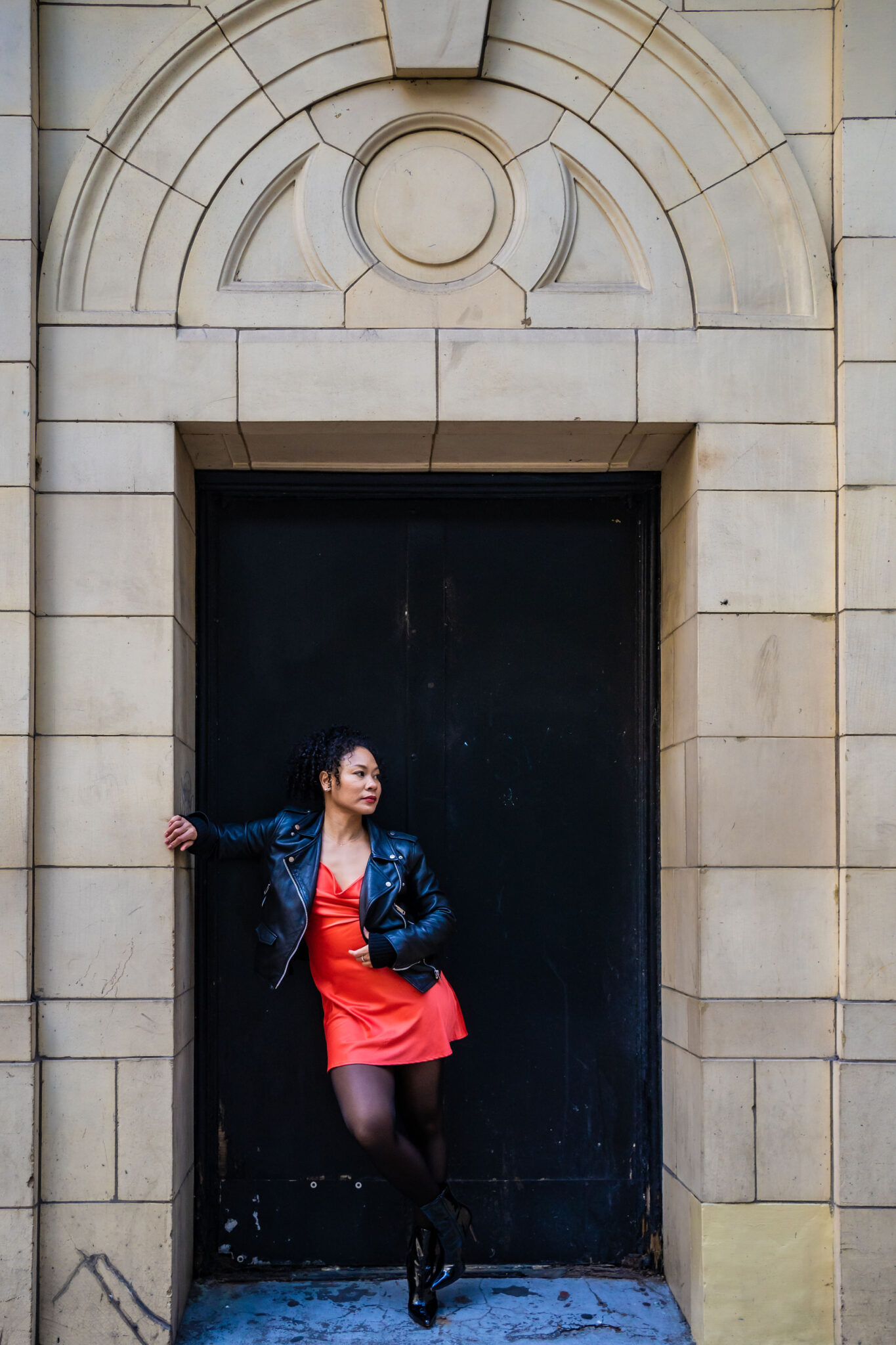
Despite it not being made yet, how has your pilot for Blasian helped open those doors to other opportunities to give you a foothold in the industry?
My first writing job in the industry was for Will Smith. I did some uncredited work on an animated feature he starred in called Spies in Disguise back in 2018. That connection came about because I had been interning for Lena Waithe, in the hope that it would turn into a writing gig, and thankfully, it did. Will’s executive at the time told Lena that he was looking for a comedy writer to come in and help on the project and Lena’s assistant recommended me. Overbrook (Will’s production company) reached out, asked for a writing sample and I sent them Blasian. Within twenty-four hours, I was on my way to Miami to work with one of my childhood heroes.
What’s amazing about getting to share this story with the High Jump community is that it was mostly an improvisation-based type of gig. I was pitching jokes, character ideas and story elements on the fly with Will, and it’s a full circle moment back to my first acting improv class at High Jump. Those skills have proven to be incredibly valuable.
This opportunity really changed my life! From there, I got my first literary manager and was off to the very slow races. I say that because it’s still been a long road since then but getting to work with Will accelerated my progress significantly.
As you’ve headed out on those very slow races and have begun to work on developing your own shows, what experiences have helped you draw the road map of how to move to that next phase of your career?
I got to participate in The Imagine Entertainment Incubator with my pilot for Blasian, and that was helpful because I was able to hone my pitching skills and they helped us form LLCs through which we could get paid for our writing. Those business details are pieces that don’t get spoken about enough and yet, they have a lot to do with being a thriving creative entrepreneur as well as longevity and sustainability in the business.
I also was a dialogue coach on the first season of HBO’s Barry and that helped demystify how to run a successful show. When you’re there every day it becomes a job, and I don’t mean that in a bad way. I feel like certain jobs are put on a pedestal, as if it is some holy grail sort of thing. Yet Bill Hader and Alec Berg were such regular dudes doing a thing and making something they wanted to make. Being that close to it really made me see just how very possible it is to do. Not easy, but possible, and it can be fun in the process.
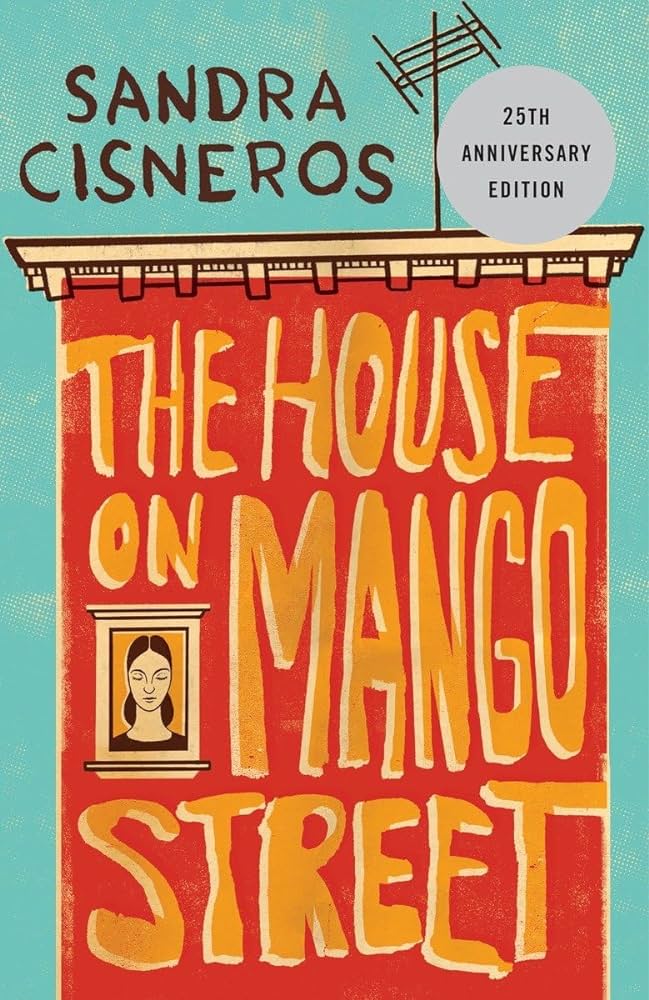
And now, you’re getting to do the same thing, developing multiple projects and making things that you really want to make. Could you tell us about one of the projects you’re the most excited about?
Yeah, The House on Mango Street. I’m working on an adaptation of the iconic novel by Sandra Cisneros into a series right now, which is crazy!
What is your role in the show, and how did that come about?
I’m adapting it as the show creator in terms of the adaptation, concept, all of that is mine. I’m not supposed to have this job. On paper, I’m not qualified for this job. I happened to get in with a general meeting at the production company who had the rights to the book. The production company had been working with Sandra and interviewing, specifically, showrunner level writers to adapt it. Whenever I would have a general meeting, I would, you know, do my homework to try to set myself up for success in the meeting. When I saw that this company had the rights to The House on Mango Street, I completely lost it. I remember I called my manager at the time, who told me they had actually submitted me for the position, but they thought that I wasn’t quite right for it. I didn’t have the resume. But he said that they enjoyed my script, and so they just wanted to meet, generally.
So I then plucked my copy of The House on Mango Street off my shelf and decided, you know what? It can’t hurt. What do I have to lose? Again, I think this is just that Chicago sort of scrappiness, ambition, maybe just sort of ignorance because I didn’t know any better, you know? When I tell other writers that are further along in their careers this story, they look at me like I have three heads because they’re like, as a younger writer, I would never have even thought to do that. There is a very sort of cemented hierarchical structure when it comes to writing and when it comes to the business, especially when it comes to television, which is why your question is so important and why I’m giving such a long answer. Because I really want people to know that, yes, those hierarchical structures exist. But when you have done the work, when you have that personal connection, when you have all these other things that are not quantifiable and are really just honest and human, I think you can sort of supersede a lot of those boundaries if it’s the right project for you.
So I decided to go into that general meeting and make it about The House on Mango Street and shoot my shot, regardless. You know? I found the right moment in the meeting to segue into that. The executive I was meeting with kind of told me, well, we’re only meeting showrunner level writers for this. And I was like, yeah. Yeah. Okay. Cool. But I want you to know my passion for the project and this character. I experienced this. Like, I’m from Chicago. I know this place. I know these people. I know this story. I was just kinda a little relentless. By the end of that meeting, he said, you know, I think you should meet my boss. And then from there, I was kind of off to the races.
Can you tell me why this book was so personal to you? Where did that connection and passion come from that made you jump at this opportunity all in?
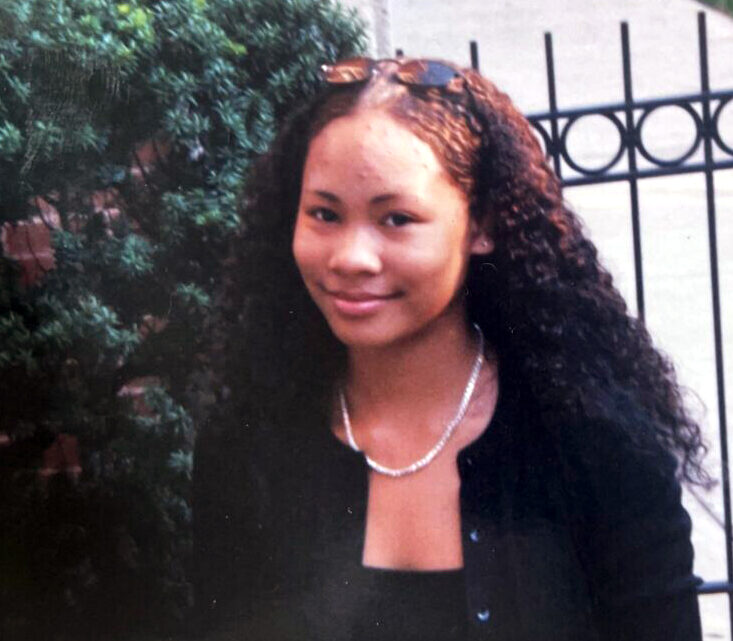
I was assigned to read The House on Mango Street when I was in middle school. That book was a formative text for me. You know, there’s my life pre-Mango Street and my life post-Mango Street. That was one of the books where, like, as soon as I was done reading it the first time, I just immediately flipped it back to page one and reread it and then would reread it every few months or so. As I got older, it always stayed with me, because just in terms of representation, I think it was the first time that I read a piece of literature that I really felt reflected my own story and my own upbringing and my own family. Especially, being a Black girl from, you know, the inner city of Chicago. My family is very, very diverse. So, You know, my mom is Black. My dad’s Filipino. My stepmom is Mexican. I have siblings who are Filipino and Mexican. My stepdad was Greek. My brother on my mom’s side is half Italian. So we’re like this melting pot of a family. So even though it’s an adaptation of a really beloved novel, in a lot of ways, it’s also my story.
How are you approaching the honor and weight of adapting such a seminal book?
I mean, the honor and the weight is real. I think it would be impossible if it wasn’t for the support, the mentorship, and the relationship that I have with Sandra Cisneros. She has taken me under her wing in the most unbelievable way. I barely know how to put it into words because I still pinch myself at the fact that she knows who I am. Let alone has read my work, likes it, and has entrusted me with basically her first child. So the fact that she’s entrusted me with it, that I would say, does help kind of alleviate some of the weight and the pressure because I’m just like, look, at the end of the day, as long as Sandra’s happy, I did my job.
Sandra is Executive Producing the series, so before I got the job, I had to meet with her, get her blessing. And I think that also does add a certain amount of confidence for me, to be like, alright, well, she chose me. That was ultimately her decision, and who am I to question this brilliant woman, you know? So the fact that she’s entrusted me with it, that I would say, does help kind of alleviate some of the weight and the pressure because I’m just like, look, at the end of the day, as long as Sandra’s happy, I did my job.
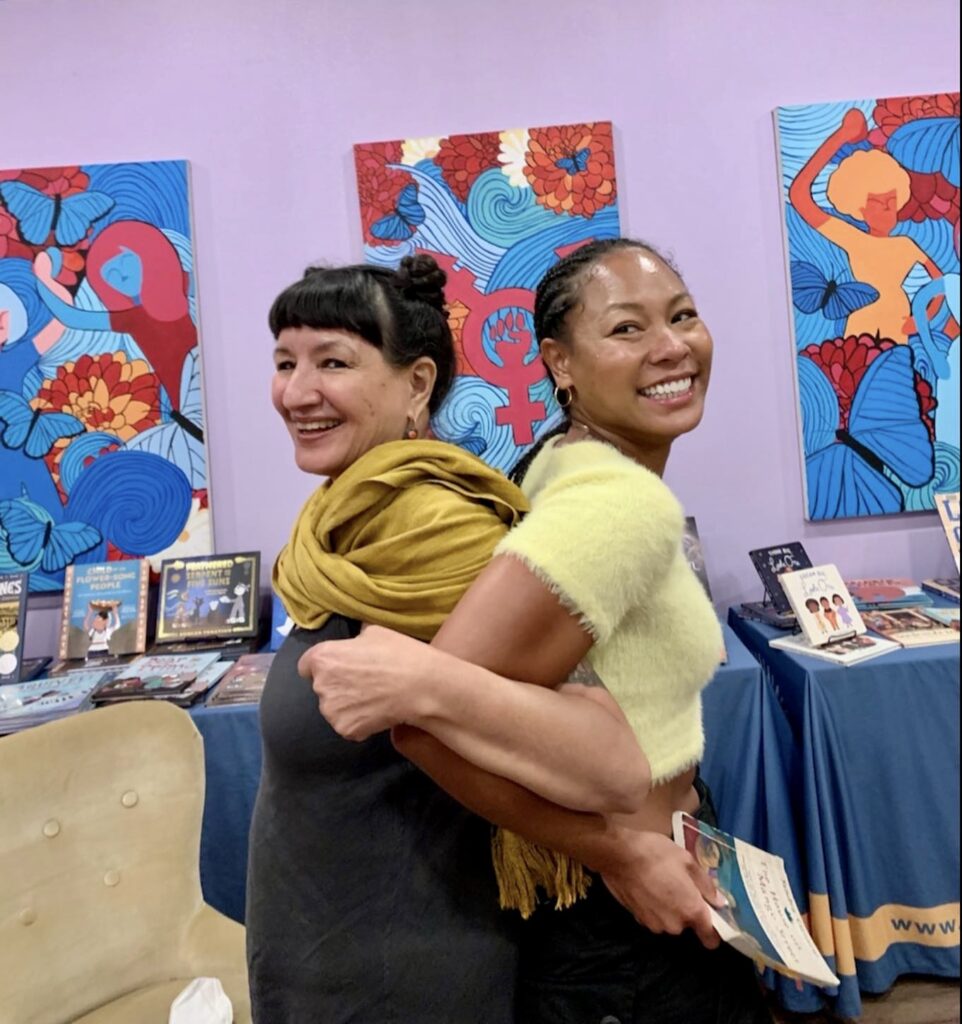
That’s so incredible to have this towering literary figure instill that trust in you to take what is essentially her autobiography and run with it. At the end of the day, all art is autobiography. With Mango Street and with all of your projects, how do you approach these stories and also infuse them with your own story?
I like what you said about all art sort of being a form of autobiography because I definitely do feel that to be true for myself and something I always tell aspiring writers is to really think about what is their own personal story. Even if you’re writing an assignment, even if you’re adapting someone else’s work, you know, looking at what are the personal experiences that I have that are relevant, that I can bring emotional truth. For me, the work always begins and ends with the personal, because that’s the thing that is yours and that no one knows better than you.
I also approach all of these creative endeavors as acts of service. So to me, it’s like, I’m here to be of service. So because of that, I approach my work as an open book and with an open heart. None of my own personal stories and experiences and emotions or anything is really off limits in terms of, like, what I’m willing to pour into the work, to be of service.
Are any of your experiences in High Jump some of those personal things you are looking to bring to the adaptation?
Definitely, taking it back to High Jump, there are some exciting things that we’re doing with the show in terms of the world of Mango Street so that Esperanza’s point of view and her experience of the world isn’t just limited to that block or that neighborhood. It’s also exploring this idea that I first really felt in High Jump that who you are, where you’re from, is something that you take with you wherever you go. And so we’ll explore what is it like for her to be in, say, a different academic setting or a setting outside of Mango Street where she’s feeling like an outsider, where she might start off in a situation feeling like her background is a deficit to then understanding that it actually is an asset, and it’s a strength and it’s something that sets her apart, which I mean clearly I identify with.
To her immense credit, from day one, Sandra has always encouraged me to bring more of myself to the project. So, with Sandra in our conversations, I’ll tell her personal anecdotes, and she’ll be like, “Oh, you should put that in the show.” She’ll say to me, “I really love when you bring more of yourself to it,” and then encourage me like “Hey, you should write some of your own original poetry for the show.” If it wasn’t for her encouraging me to do that, I don’t think I would have the gumption to do so. So I pretty much entirely credit her with being so incredibly generous and giving me the freedom and that space and sharing the world that she created with me to now interpret it for the screen.
Beyond bringing that personal eye to the adaptation, what else can you share about what’s guiding your take of Mango Street as a series?
Sandra’s dedication in the book is “A Las Mujeres.” She literally said this book is to the women. So, for me, that was really the jumping-off point. After my frustration of, as an actress in my twenties, being essentially told, “Women like you don’t exist on screen right now,” for me, that was a very big thing, like, we’re doing it for the women. What is it like to just be an everyday woman of color with a story, with dreams, with goals, with struggles with obstacles. To be the woman that not only I am, but the women I see in my family, the women that raised me. For me, it was essential to have this female-centric, working-class point of view, just so very important to have it front and center and to not minimize that and to not sugarcoat that, to show all of what is encompassed in that in the most honest light as possible.
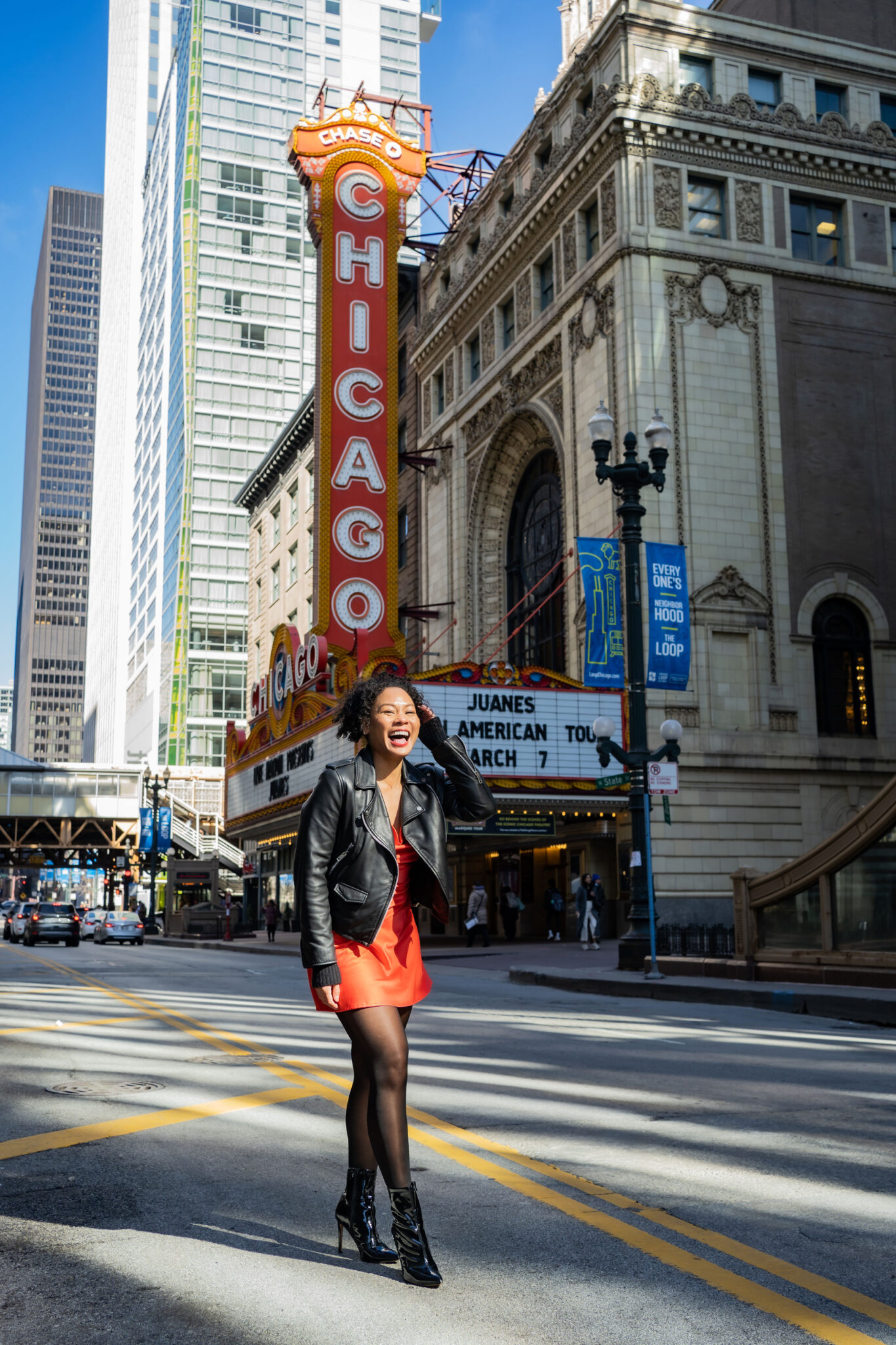
One of the things that I love about this book is that going into your teenage years, you could feel like this small person, and yet you have these big feelings, these big, big feelings, and how do you reconcile that? Even with Chicago being a big city, it can oftentimes feel really small and really limiting depending on what neighborhood from and what your background is. And so for me, I really wanted to draw out those big feelings that Esperanza has and make it be like, hey, these feelings, these stories are just as epic as The Odyssey. It doesn’t have to be, you know, a man on a horse wielding a sword and a shield. It can be a young woman navigating the terrain of her own emotions and her own goals and dreams that are in direct opposition with her circumstances. And that, to me, is as heroic as any hero’s journey that we’ve seen.
One of the things that I love about this book is that going into your teenage years, you could feel like this small person, and yet you have these big feelings, these big, big feelings, and how do you reconcile that? Even with Chicago being a big city, it can oftentimes feel really small and really limiting depending on what neighborhood from and what your background is. And so for me, I really wanted to draw out those big feelings that Esperanza has and make it be like, hey, these feelings, these stories are just as epic as The Odyssey. It doesn’t have to be, you know, a man on a horse wielding a sword and a shield. It can be a young woman navigating the terrain of her own emotions and her own goals and dreams that are in direct opposition with her circumstances. And that, to me, is as heroic as any hero’s journey that we’ve seen.
Sandra talks about writing The House on Mango Street, and she talks about going to Greece to finish her manuscript. And she has this line, which is “Back in my Greek days, I thought I was Penelope. But now, looking back on it, I realized I was Odysseus.” So, for me, I want young women to feel like they are Odysseus.
Looking to the future beyond the projects you’re working on now, what are some of the things you hope to accomplish in your career?
It’s an interesting, ever-changing and evolving time in the industry and I am reading the tea leaves. I will always be writing, storytelling and being creative because that’s just who I am. Hollywood didn’t make me, and it doesn’t define me or my goals. I am looking for ways to do what I love in ways that are independent, self-sustaining and soul fulfilling. I’d love to run my own theater company. I’ve written one play and I’d like to write more plays. I’d also love to be able to give back more and teach workshops to pass on what I’ve learned to the next generation.
Looking back to your time at High Jump, what has been its lasting impact on your journey through work and life and the kinds of values and lessons you learned then that you still carry today?
One of the main things has to do with not feeling limited by your circumstances, right? That for me was huge for me. High Jump really became a refuge for me as a young person to know that, you know, whatever days we have set for High Jump, they’re happening, rain or shine, they’re not going to cancel. They’re going to show up. You’re going to be fed. You’re going to be safe. Even these basic things that sometimes we take for granted, but as kids, if we don’t have those basic things in place, we don’t really have much of a chance in being able to really realize our potential or to even just be able to think and dream and, and explore what our potential could even be.
Why do you think a program like High Jump needs to exist?
It was interesting because when I came to visit High Jump recently, I learned about the growth and the expansion of the program and being surrounded by all these people, speaking specifically about the adults, you know, people such as yourself, who are all working tirelessly to not only keep the program afloat but to see it thrive.
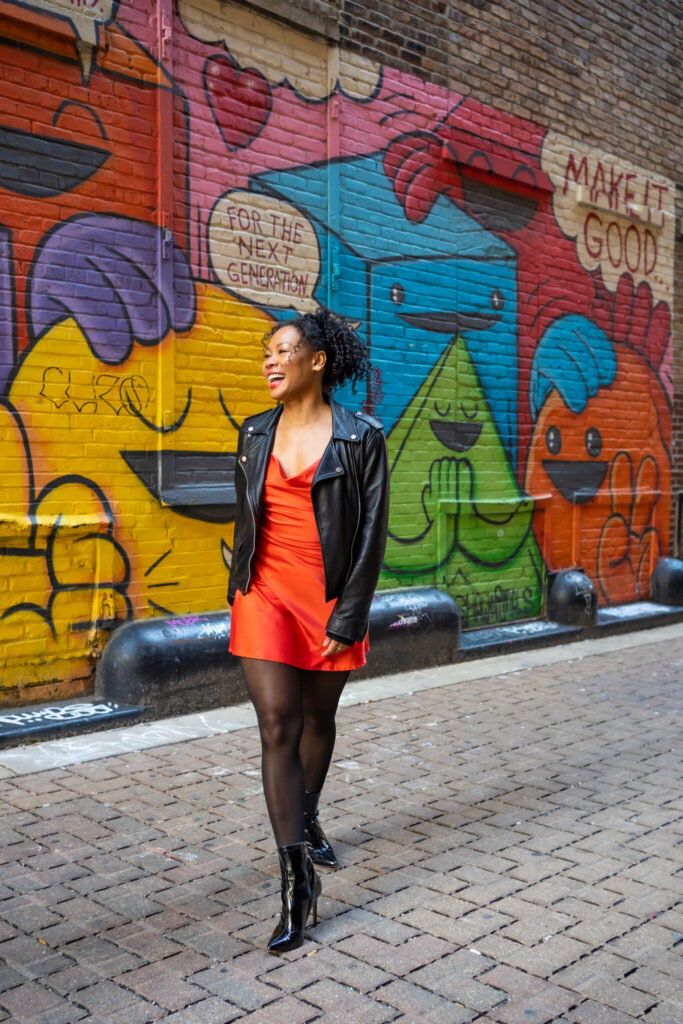
There are all kinds of horrible, dark things happening in the world. And sometimes it can seem bleak and, and, you know, you’re like, man, what, what is going on? What do we do? And I remember being at High Jump, and just kind of looking around and having this almost overwhelming feeling of, you know what? There are people that are doing the work. There are people who are doing good. There are people who are just taking up that mantle of making sure that the youth have everything that they need to be set up for success. And it’s like, no detail is too big or too small, whether it’s helping with applications for whatever schools or programs that they’re trying to get into, whether it’s talking about how you just even present yourself as a young person and talk about your goals, talk about who you are, where you’re from, and where you want to go. And I just remember feeling such a sense of hope.
It’s funny because we’re talking about Esperanza in The House on Mango Street, and Esperanza means hope. And, in light of everything that’s going on in the world, I don’t think that there is a more valuable emotion right now that we could be cultivating and nurturing in everyone than to have some hope.
You can help more students like Aris pursue their dreams with High Jump’s help!

